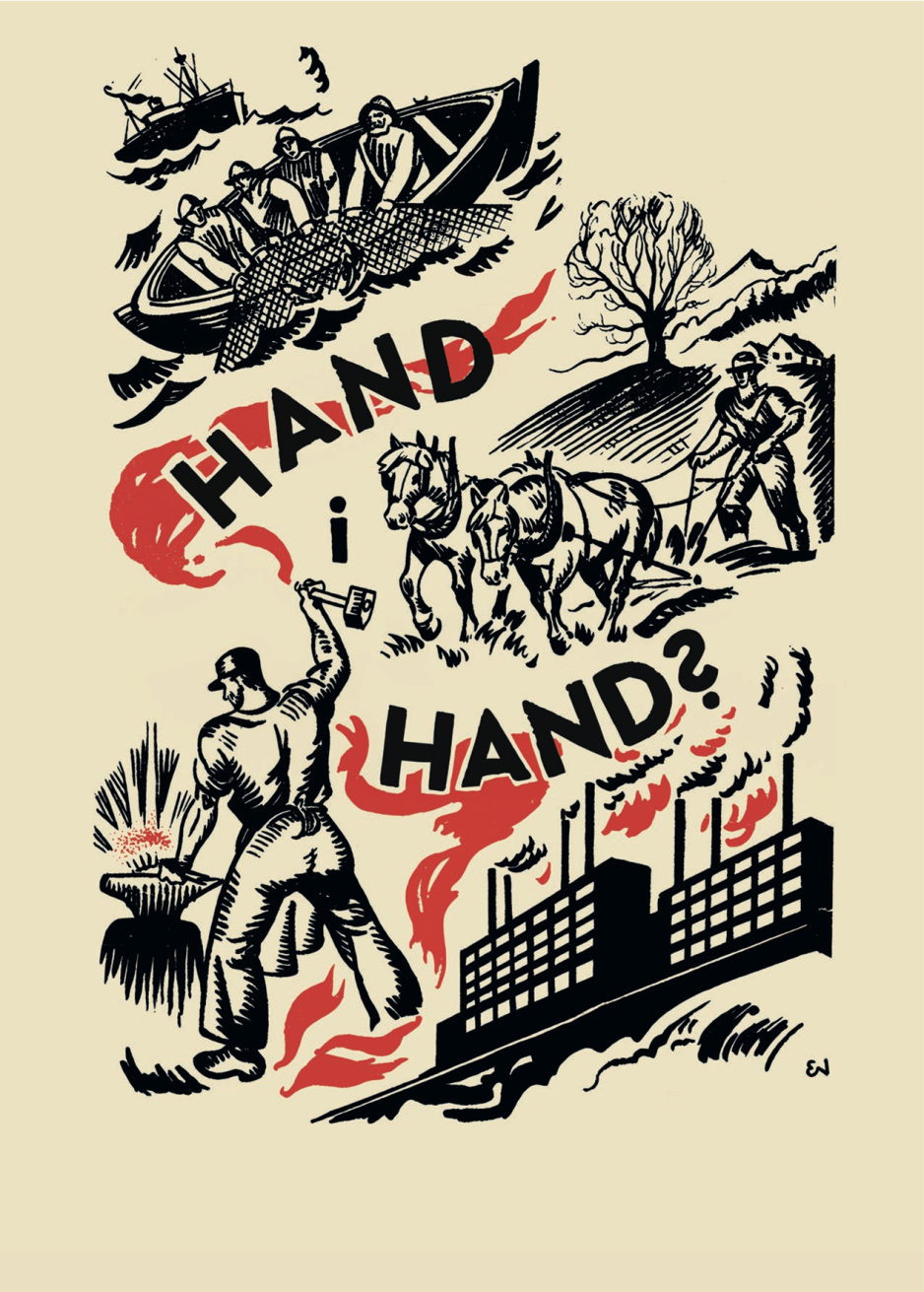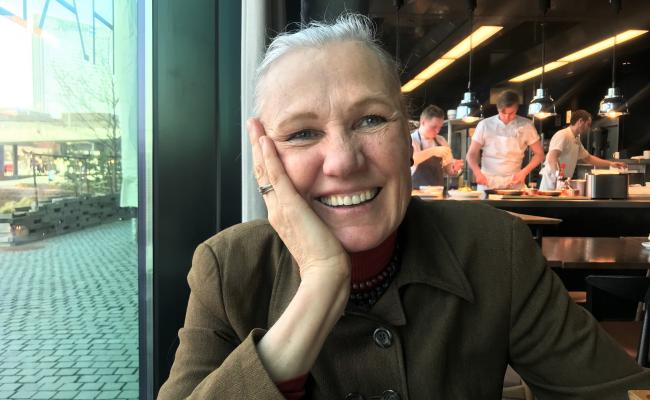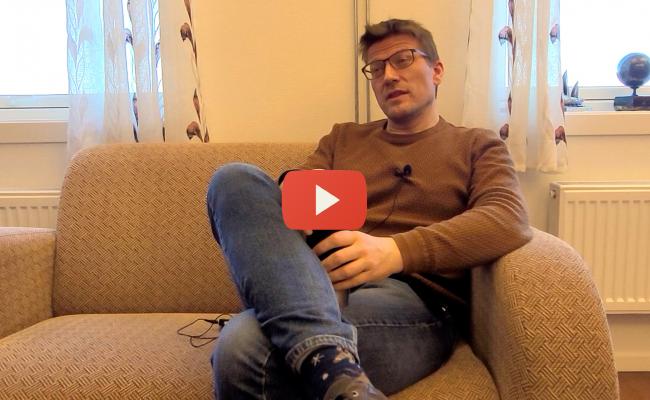Book Review: “We Need to Continue Directing the Public Focus Northward”
Ingrid Vik is a Special Advisor for UTSYN – Centre for Security and Resilience, historian of religion, and author of the book "Hand i hand?" By og land i polariseringens tid ("Hand in hand?" City and country in the era of polarization, editorial translation). Vik has many years of experience in the field of foreign affairs and security policy, with work in the Balkans, among other things. In recent years, she has turned her gaze toward Norwegian towns and districts – to explore the dividing lines that exist out there.
Through many years of work in Eastern Europe, Ingrid Vik observed that people are moving away with the feeling of "the future" being elsewhere. In her new book, she takes a closer look at the Norwegian reality in small towns and districts. She believes that the depopulation, particularly affecting Finnmark, is escalating and dangerous to us as a society.
After several years of political dialogue work outside of Norway, author Ingrid Vik embarked on a journey to several Norwegian municipalities. The aim was to see how things really are out in Norway's small towns and districts on the periphery.
The work and the journey, which began during the pandemic, turned into the book "Hand i hand?" By og land i polariseringens tid ("Hand in hand?" City and country in the era of polarization, editorial translation). "Hand in hand" – after the Labour Party's slogan in the election campaign of 1933.
The Norwegian reality
"I have long worked on matters of conflict abroad – in the Balkans, among other places, but I turned my gaze northward after an assignment from UTSYN – Centre for Security and Resilience. The aim was to see the Norwegian reality," says Vik to High North News. She is also a Special Advisor at the center.
In the book, Vik reviews some of the polarized conflicts present in many local communities – and how they are handled. She sees deep division in several places, between city and country and between groups in society. The author fears that, in the long run, these could weaken the Norwegian culture of trust and democracy.
Norwegian dividing lines
When working on the book, Vik has delved into the old political lines of conflict between the center and the periphery, drawn up by the political scientist Stein Rokkan.
The term "center-periphery" comes from Rokkan's work on social, economic, and cultural dividing lines in society and how these laid the foundation for creating political parties.
"We live in an era in which the dividing lines between the center and the periphery have become clearer. In the 2021 general election, we saw an example when the Center Party raked in votes with district policy on their agenda. We saw how strong this center-periphery conflict is and how easy it is to bring to life," says Vik.
High North News meets the author on a rainy Friday in the middle of Oslo, where the grey, modern buildings rise from the Oslo fjord.
During the past two years, however, she has spent a lot of time in places that look quite different from this, such as Eastern Finnmark and the areas near the border to Russia. The journey has taken place along Sør-Varanger, towards Vardø and Vadsø, and inland towards Porsanger.
In the book, Vik pays particular attention to struggling municipalities in Finnmark, as well as dividing lines that exist both within the county, in the municipalities, and between the north and the central authorities in the south.
"The notebook is full of keywords about difficult matters in the relationship between the North and the South. Oil, energy, and windmills. Intelligence and defense. And then region reform, region reform, region form," writes Vik about her journey to Kirkenes in connection with the book.
Popular uprising against region reform
"In several cases, the dividing lines open up again after having laid dormant. An example is the Solberg government's project with the region reform, in which the division between district and center truly opened up," says Vik.
The region reform was a reform of the county structure in Norway. For example, the two counties, Troms and Finnmark, were consolidated into one county. The merger met great resistance in Finnmark, and in the book, Vik demonstrates how the process became the straw that broke the camel's back.
"Usually, there is not just one matter that makes people snap. Instead, it is issue after issue – and negative development over time – which culminates when a major measure is initiated, such as the county merger in the north."
"Finnmark is the primary focus of Northern Norway in my book, and the region reform matter was interesting to me as it was frequently referred to and mobilized significant resistance. However, the government's prestige project failed due to several reasons. I think it was primarily about the government's lack of ability to anchor the project and talk with and listen to the affected population to a good enough degree."
Many likely feel that they are living in a more uncertain part of the world – without it being fully understood and recognized in the country at large.
At the tipping point
One of the most pressing matters in Finnmark at the moment is how the depopulation affects society, believes Vik.
"In Eastern Europe, I saw people moving away with the feeling of "the future" being elsewhere. That is also the case in many places in Norway, in many small towns, especially in Finnmark. Here, the depopulation is escalating and downright dangerous for us as a society."
"In Finnmark municipalities, I see the despair in mayors and individuals every time a family moves because they know what ripple effects it will have. It could be everything from the convenience store closing done, jobs disappearing, to empty school desks."
She particularly singles out the municipality of Vardø. The depopulation has been extreme in a few decades.
"I want to describe it as an existential crisis and the tipping point of what a society can endure. The municipality has now paid for high school students themselves in a desperate attempt to not lose them as well since the county is struggling with its finances. In such a serious situation, it must be the state's responsibility to follow up," says the author.
A matter of security
Vik also highlights how demographics is a security policy matter, especially in the border areas to Russia.
"This is a defense-heavy region, and the depopulation also affects the Armed Forces. They depend on a present civil population that can contribute to what is needed in a community so that personnel will settle down and stay there," she adds.
At the same time, she lifts up the people who are behind the gloomy depopulation figures.
"Many likely feel that they are living in a more uncertain part of the world – without it being fully understood and recognized in the country at large," Vik points out.
"It is about the feeling of being ignored and that the authorities, in particular, do not understand how security policy, for example, is not just about Russia, but about whether an ambulance can be there quick enough if something happens, or if the police will come if a dangerous situation arises – or if there is a storm or other acute situations."
"The periphery is the places we drive by or fly above," said the sociologist Gudmund Hernes. Places where people feel forgotten, where jobs gradually disappear. Schools shut down. Places that are populated by men because the women move to the cities to get an education," writes Vik.
What has surprised you the most in the work with these topics and the book?
"In many ways, I was prepared, but I must say that it is sad to experience some of the same things I have seen other places in Europe, such as the wear and tear of public buildings," she says and continues:
"Vardø is a very exciting city with beautiful, scenic surroundings. At the same time, battered buildings are falling into disrepair. In some places, only signs are left on the doors, a testament to the activity that once took place there. Windows are broken, or boards have been nailed on."
"It is sad and a kind of undignified public poverty. Then it hits me that the central areas in Eastern Norway, around Bergen and even Bodø, must feel very far away. It is actually quite serious," she emphasizes.
The public and state administration must be present in various places.
Government jobs
Vik points out a related matter of how government services are continuously being withdrawn from the districts.
"I understand the need for centralization, but I also see that moving relevant services out of the capital could be meaningful. It is not just symbolic policy; it has to do with the country being large and long, and the public state management must be present in various places. This must be done smartly, and one must put up with a little noise," she says and continues:
"With the current situation in Finnmark, with a heavy negative demographic development, the state must enter and foot the bill. The aim is for Finnmark to build large enough environments within business and sustainable communities, but I do not think it is possible without strong state involvement."
Lift the debate about the North
Vik especially hopes that the book will be read by those living in their own bubble.
"The book is intended for the interested public, and I also hope it will be read "out there" among those I write about. In addition, I hope it will be read by people in central areas – perhaps especially those with a lot of opinions on Finnmark or agriculture, for example, without having familiarized themselves with how things really are."
In conclusion, the author believes that the debate about the reality in the North must be lifted even higher on the agenda.
"We must be involved in creating a greater public debate and interest in the High North in general. These are such important areas for us and very strategically exposed areas. We have every reason to direct our attention there, even though this has grown recently. We just must not let go of it."






